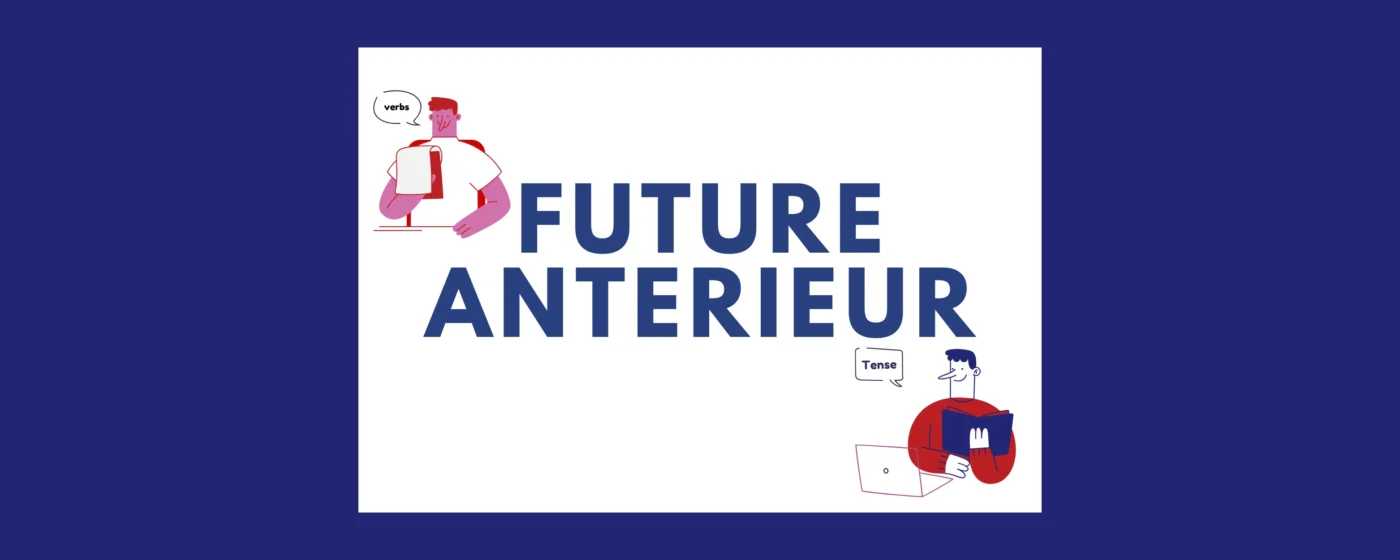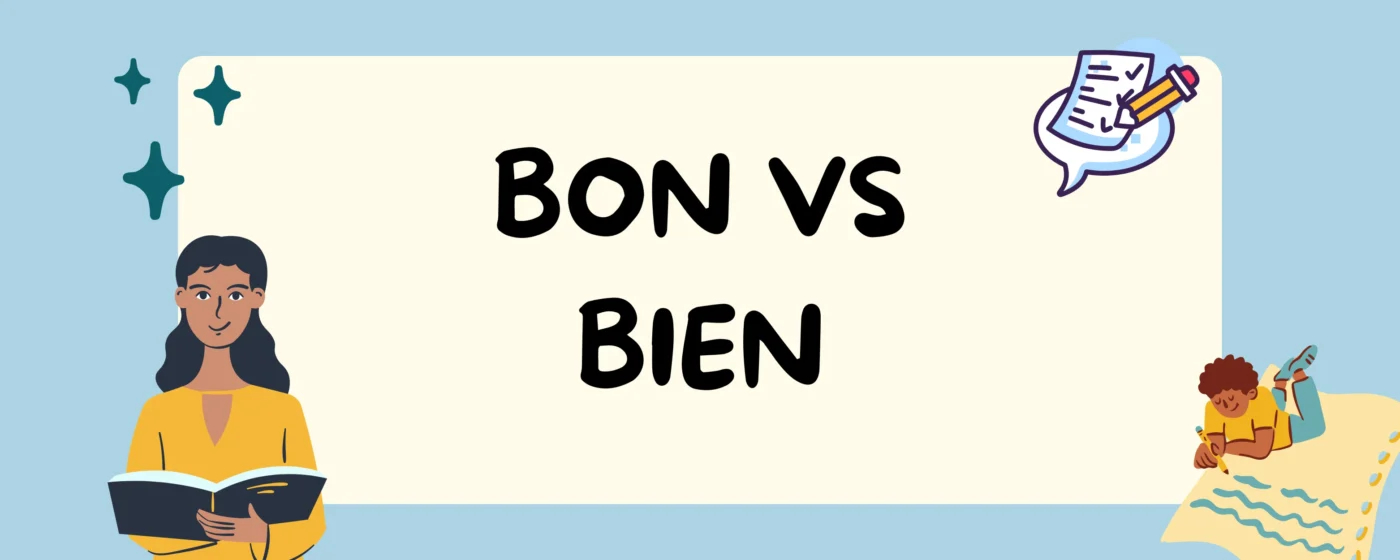Futur Antérieur: Your Comprehensive Guide

The French language has a variety of tenses to express future events. One such tense, the futur antérieur, might seem complex at first. But don’t you worry! This guide will help you master this advanced tense.
Key Takeaways
- Learn and clear all your doubts related to The futur antérieur, and describe a future action that will be completed before another future event happens.
- Here, it’s formed using the future tense of avoir or être plus the past participle of the main verb.
- Learn about the Verbs, such as parler follow regular endings, but irregular verbs like avoir have unique forms, such as aurai.
- It’s used in sentences to show completed future actions, conditional phrases, and indirect speech.
- Learn and practising with reading, flashcards, and listening helps you master this elegant but formal tense.
What is Futur Antérieur (Future Perfect Tense)?
The futur antérieur, also known as the French future perfect tense, allows you to talk about actions that will be completed before another future event.
Think of it like this: the futur antérieur describes something that will be finished in the future, and then another future event will happen after that. Compared to the English future perfect tense, it’s used more frequently in French to express complex future ideas.
Forming the Futur Antérieur
The futur antérieur is formed by combining two elements:
- Auxiliary Verb: You’ll use either the future tense of avoir (to have) or être (to be) depending on the verb.
- Past Participle: This is the verb’s form that shows a completed action.
Here’s a breakdown:
Auxiliary Verbs: Avoir and Être
The choice between avoir and être depends on the main verb:
- Use avoir with most verbs, like parler (to speak) or finir (to finish).
- Use être with verbs of movement (aller, venir, etc.) and some reflexive verbs (se lever, se souvenir, etc.).
Futur Antérieur Conjugations of Avoir and Être
Here’s how to conjugate avoir and être in the future tense:
| Person | Avoir (Future) | Être (Future) |
|---|---|---|
| I | j’aurai | je serai |
| You (singular) | tu auras | tu seras |
| He/She/It | il/elle/on aura | il/elle/on sera |
| We | nous aurons | nous serons |
| You (plural) | vous aurez | vous serez |
| They | ils/elles auront | ils/elles seront |
Past Participles
The past participle is the verb’s form that shows a completed action. Here’s how to form past participles for regular verbs:
- -ER verbs: Remove the -er ending and add -é (parlé, parlé, parlé) (speak, spoken, spoken)
- -IR verbs: Remove the -ir verbs ending and add -i (fini, finie, fini) (finish, finished, finished)
- -RE verbs: Remove the -re verbs ending and add -i (rendu, rendue, rendu) (give back, given back, given back)
Examples:
- J’aurai parlé à Marc avant qu’il parte. (I will have spoken to Marc before he leaves.) (parler = verb, -é = past participle)
- Elle sera sortie quand tu arriveras. (She will have gone out when you arrive.) (sortir = verb, -ie = past participle)
- Irregular Verbs in the Futur Antérieur
Some verbs have irregular past participles. Here are a few examples:
- Prendre (to take) – pris (taken)
- Faire (to do) – fait (done)
- Aller (to go) – allé (gone)
Examples:
- J’aurai pris le train avant qu’il ne parte. (I will have taken the train before it leaves.) (prendre = irregular verb, pris = past participle)
- Nous serons allés à la plage avant la
Using the Futur Antérieur
Now that you know how to form the futur antérieur, let’s see how to use it in different contexts:
- Expressing Completed Actions in the Future:
This is the most common use of the futur antérieur. It describes something that will be finished before another future event.
Example: D’ici demain, j’aurai fini mes devoirs. (By tomorrow, I will have finished my homework.)
- Conditional Sentences:
The futur antérieur can also be used in conditional sentences (if clauses) to talk about hypothetical future situations.
Example: Si j’avais eu plus de temps, j’aurais voyagé en Europe. (If I had had more time, I would have traveled to Europe.)
- Indirect Speech:
The futur antérieur is used when reporting what someone said about a future event that has not yet happened.
Example: Elle m’a dit qu’elle aurait terminé son projet avant la fin du mois. (She told me she would have finished her project before the end of the month.)
Grammar Made Easy as Bonjour!
Our tutors guide you through tricky grammar points to make French a breeze.
Negation and Interrogation in the Futur Antérieur
- Negation:
To negate a sentence in the futur antérieur, follow these steps:
- Add ne before the auxiliary verb (avoir or être).
- Place pas after the past participle.
Example: Je n’aurai pas fini mon travail à temps. (I will not have finished my work on time.)
- Interrogation:
There are two ways to form questions in the futur antérieur:
- Inversion: Flip the subject and the auxiliary verb.
Example: Aura-t-elle fini son dîner avant huit heures? (Will she have finished her dinner before eight o’clock?)
- Est-ce que: Use “Est-ce que” before the subject, followed by the regular sentence structure.
Example: Est-ce que nous serons allés en France l’été prochain? (Will we have gone to France next summer?)
Futur Antérieur vs. Passé Composé
Both the futur antérieur and the passé composé (past perfect) talk about actions completed in the past. However, they have different uses:
- Futur Antérieur: Describes an action that will be completed before another future event.
- Passé Composé: Focuses on an action completed at some point in the past, with no connection to another specific event.
- Example:
- Futur Antérieur: J’aurai fini de manger avant qu’il arrive. (I will have finished eating before he arrives.) (focuses on future completion before arrival)
- Passé Composé: J’ai fini de manger. (I have finished eating.) (simply states the action is completed)
Practice Exercises
Test your understanding of the futur antérieur with these sentences! Fill in the blank with the correct form of the verb in the futur antérieur.
- Ils _________ (prendre) le train avant qu’il ne soit trop tard. (They will have taken the train before it’s too late.)
- Nous _________ (aller) voir ce film quand tu seras disponible. (We will have gone to see that movie by the time you’re available.)
- Que _________ (faire) -tu quand tu auras fini tes études? (What will you have done when you finish your studies?)
- Si j’avais su, je ne _________ (pas/sortir) hier soir. (If I had known, I wouldn’t have gone out last night.)
Answer Key
- auront pris
- serons allés
- auras fait
- ne serais pas sorti
Conclusion
The futur antérieur might seem challenging at first, but with practice, you’ll master it! Remember, this tense allows you to express nuanced future ideas by highlighting the completion of an action before another future event.
By incorporating the futur antérieur into your French vocabulary, you’ll enhance your fluency and ability to communicate complex ideas.
However, if you feel this is too overwhelming for you to plan and follow-through on your own and wish to further enhance your French learning journey through a more structured approach, you can consider joining La Forêt French Class!
Frequently Asked Questions
Q: What is the difference between plus-que-parfait and futur antérieur?
Ans: The plus-que-parfait (past perfect) refers to an action that was completed before another past event. The futur antérieur, as discussed, focuses on an action that will be completed before another future event.
Q: What is the future perfect tense in formula?
Ans: There’s no single formula for the future perfect tense across all languages. In French, the futur antérieur is formed with the future tense of avoir/être and the past participle of the main verb.




